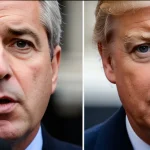How changes in the UK’s media landscape shape public opinion
The UK media evolution has shifted dramatically from traditional outlets to digital and social media platforms. This transformation significantly influences public opinion formation by changing how people access, interpret, and engage with news content.
With the surge in digital news trends, more citizens turn to online sources, including social media, for updates, rather than relying solely on newspapers or television. This accessibility has broadened public reach to diverse perspectives. However, it also introduces challenges like information fragmentation, where varying quality and viewpoints compete, complicating societal perceptions.
This might interest you : How is the UK tackling income inequality issues?
Digital platforms empower users to participate actively in news sharing, leading to more interactive public discourse. Yet, this participatory environment can amplify selective exposure, reinforcing existing biases. As a result, the UK media evolution fosters complex dynamics in shaping opinions—combining greater information access with risks of polarization.
Understanding these shifts helps clarify how modern media’s structural changes directly reshape collective views across the UK. Recognizing this impact is vital for navigating the evolving landscape and making informed decisions about news consumption and trust.
Also read : How Are Current UK Political Dynamics Influencing Public Opinion?
Recent transformations in UK media channels
The digital media growth UK has accelerated sharply, reflecting a profound shift in how news is accessed and consumed. Traditional print media faces decline as audiences increasingly prefer online platforms for timely updates. This migration aligns with expanding social media influence, where platforms like Twitter and Facebook serve not just social purposes but also primary news sources for many.
Such changes provoke news consumption changes by fragmenting audiences. Instead of uniform media experiences, people now select from diverse channels catering to specific interests and viewpoints. This fragmentation challenges shared understanding, as varied content and algorithms reinforce personalized news feeds.
The rise of digital news outlets creates both opportunities and challenges. On one hand, information is more accessible and interactive; on the other, the abundance and variability of sources complicate verification and increase exposure to conflicting narratives. These factors converge to reshape public engagement, highlighting that the digital media growth UK and expanding social media channels have fundamentally altered the media landscape.
Understanding these dynamics helps clarify how emerging consumption patterns influence societal perceptions and discourse across the UK. The social media influence now extends beyond leisure, becoming a pivotal driver in public opinion formation amid shifting media ecosystems.




